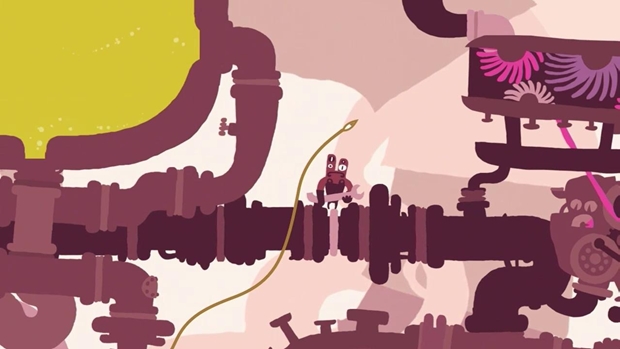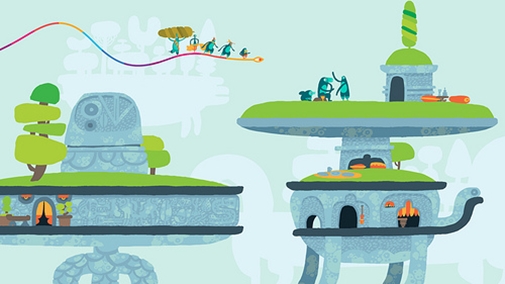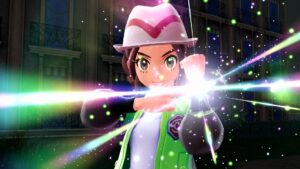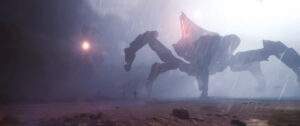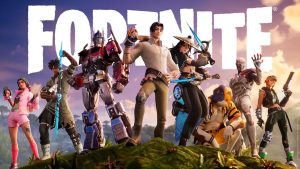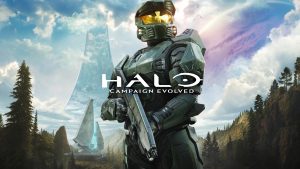
Hohokum, by all rights, is a video game. What kind of video game is it? Well, by the admission of developer Honeyslug and artist Richard Hogg, it’s about exploring, relaxing and just enjoying the experience. You’ll be playing as the Long Mover and moving the big bright world of Hohokum, doing what you want. In a way, it’s an artistic rendition of the phrase “Not all those who wander are lost” and we’re down with.
GamingBolt had a chance to speak to Honeyslug co-founder, coder and designer Ricky Haggett along with artist Richard Hogg about the game and just what the heck was going on. Hohokum will be out in mid-August for PS3, PS4 and PS Vita so if you’re curious about the quirky journey you’ll be taking, read on.
Ravi Sinha: Hohokum looks really beautiful. What was the inspiration behind the art design for the game?
Richard Hogg: That’s a bit of a weird question for me. I’m the guy that draws our stuff. It’s kind of a weird question for me because it wasn’t like I didn’t draw stuff like that and then I was inspired to draw stuff like that for this game. I was kind of drawing stuff that looked like that before we made the game, so the inspiration behind it was whatever the inspiration is behind all of my work which is too complicated to say really.
Sorry, it’s not really a straightforward answer. I guess you might say the inspiration was the idea to make a game where I drew everything. Ricky was inspired to work with an interesting artist. (Laughs)
Ricky Haggett: Yeah, we didn’t sit down and go, “What is the art style for Hohokum going to be?” It was kind of like, “Let’s make a game where Dick is going to draw the stuff.”
Ravi Sinha: So it was kind of a natural evolution.
Richard Hogg: Yeah, it was kind of a natural evolution. And there is a specific sort of Hohokum art style that is distinct from other stuff I drew, but that’s kind of something that’s evolved as we’ve gone along, I guess.
Ravi Sinha: One other thing that caught our attention is that the game has a lot of characters in it. Will each of them have their own stories to convey?
Ricky Haggett: Well, we’ve thought a lot about who they are as characters. There are lots of characters who are almost kind of incidental, but what they’re doing in their world and what their surroundings are is intended to convey quite a lot of information about what kind of people they are.
Richard Hogg: I guess so, yeah.
"The way we lay out the places and the way we arrange what you’re likely to see first so you can figure it out without making it too obvious."
Ricky Haggett: It’s not like you get to find out what their names are or you get to find out their whole back stories, but there’s just stuff to suggest it.
Richard Hogg: There are no characters that are like with you the whole time or that you have – well, maybe there are one or two characters that you keep returning to, and you find out more about their lives and what they do.
We’ve tried to put things in our game that feel real, so there are characters that are working on making things or there are characters that are doing a leisure activity, or work in an agricultural or industrial setting. There are characters that are bored. There are characters that have hobbies or are doing something that you can identify as a hobby or sports. There are a lot of characters in video games that are killing monsters or being killed by monsters…
Ricky Haggett: There are a lot of characters in video games that exist only in relation to the player’s character, whereas in this game there are a lot of characters that don’t really notice or care about who the player is.
Richard Hogg: We like the idea that when you turn off this game, you get the feeling that something is still going on. They’re not just there to serve you. In fact, there are characters in the game who are just not interested in you at all, and there are others that follow you and think you’re the best thing ever.
Ravi Sinha: Designing puzzles for a fast and fluid game like this must have been a pretty big challenge. How did you approach that?
Ricky Haggett: Oh, it’s hard. There was lots and lots of iteration. We wouldn’t have been able to do it without lots of play testing. The problem is that you’re trying to make a game where you don’t really tell the player anything about where they are or what they’re supposed to be doing and quite a lot of the things that you interact with are just there for fun.
They’re not there to fulfill any central gameplay arc. They’re just incidental things, and you want people to organically get a sense of what things they should be trying to do over time without ever having to tell them explicitly. We never want to have a thing that’s like, “This is what you should be doing here.” We want them to gradually figure that out for themselves. It’s just lots of things. There’s never one overriding, “This is how you solve this problem.”
It depends a lot on the context of the level itself and what happens in that level. The way we lay out the places and the way we arrange what you’re likely to see first so you can figure it out without making it too obvious.
Richard Hogg: At the same time, there’s very few places in Hohokum where we want the player to feel like they’re trying to solve our puzzle. There are things you have to do in terms of each puzzle and you are trying to figure out what you have to do to make a certain thing happen, but we like to make that feel like a relaxed and natural process where you’re just enjoying hanging out, and then by the process of discovery you find stuff out and you make things happen, but you’re not banging your head against a brick wall going, “Oh, man, how am I going to do this? How am I going to get through this bit of the game?” It isn’t really that kind of game. There are a few moments in it where some things are quite hard and quite video gamey, but they’re not designed to be frustrating.
"In terms of tech, the game runs on PS3 and PS4, and it runs at sixty frames a second and 1080p, and that’s kind of important because it’s really important that it feels really solid and smooth and hi-res and you get to see the art really nicely."
Ravi Sinha: What can you tell us about the different objectives and goals in the game? You said there are any objectives per se, but it’s not set up so that the player will be wondering what to do half of the time.
Ricky Haggett: I think they will wonder what to do half the time, but hopefully in a way that is positive, where it’s like, “Ah, what should I do here?” and then gradually figure that out. In terms of what the objectives are in the places, it varies loads. Every place is really quite different, so it’s hard to really pick one specific thing.
Richard Hogg: A core objective most of the time when you’re playing Hohokum is to just enjoy the music and look at all the cool stuff, and that is a serious objective. That is like the core gameplay experience of Hohokum, and there are bits of the game where that’s all there is to it, and there are bits of the game where it’s just a nice environment for you to fly around and have brilliant music, but there are other bits of the game that have more explicitly gamey things happening as well.
I quite like the idea that when people are playing the game properly, they are messing around, enjoying themselves. Maybe they’re like, “Oh, there’s this thing I should be trying to figure out, but I’m just going to fly around here because it’s fun.” When I play video games, a lot of my favorite stuff is that stuff you do that is not the core game that you’re supposed to be doing, and it’s not even side missions either.
It’s like, see if you can climb a mountain, or just going around and looking at a part, you know, once you’ve finished part of the game just going back and looking at stuff. Sometimes when I play a game I feel bad. I’m like, “Oh yeah, I should be progressing in this game and killing more zombies but I’m actually quite enjoying just looking at this environment.” I feel guilty that I’m not working hard enough at the game, and I quite like the idea that people playing Hohokum might feel like that.
They might be like, “I’m trying to make this thing happen in this place to help this guy out who needs this thing, but actually I’m just going to fly around because I like doing that.” Like when people play a sandbox game like GTA and they go, “I’m just going to drive around. I can’t be arsed with the mission.”And that for me is like a core objective.
Ricky Haggett: It’s sort of distractions, isn’t it? It’s distractions from the fact that you’re playing a video game.
Ravi Sinha: What are the key tech features of the game, and what is the one feature that you’re really proud of?
Richard Hogg: That’s a good question.
Ricky Haggett: Yeah. In terms of tech, the game runs on PS3 and PS4, and it runs at sixty frames a second and 1080p, and that’s kind of important because it’s really important that it feels really solid and smooth and hi-res and you get to see the art really nicely. That’s kind of like a boring but true technical thing that wasn’t necessarily that easy to achieve. The PS4 touchpad is really nice. That’s a really cool thing to be able to play with. We’ve done some quite interesting stuff with that.
"It’s been one of the nice surprises of working with Sony Santa Monica is just how much expertise they’ve got in audio and their team is amazing and it’s really made a massive difference to the game."
Richard Hogg: What about the editor? I know this is something that no one will ever see, but it’s helped us in terms of having the freedom to try ideas out and prototype in a way that feels really creative. Ricky made an amazing editor. I guess that’s a technical achievement.
Ricky Haggett: Yeah. It’s all our own engine. There’s quite a lot of tools and stuff that goes along with it. It’s not like an effect, like things that we need powerful processing to do, like with animation.
Ravi Sinha: Sound seems to be a crucial element. What have you done so that matches the on-screen action?
Ricky Haggett: There’s two separate things there. We’re working with a record label called Ghostly International, who are like a record label mainly of electronic, you know, electronic artists, people who make mostly instrumental music, and some of our favorite artists are on that label and their music is in the game.
And then there’s a team of audio designers at Sony Santa Monica who are working with us on the game and they’re constantly adding audio effects to every interaction in the game, pretty much everything. Because there’s so much custom art and animation, and everything that has custom art and animation needs audio design that matches it.
Richard Hogg: It’s been one of the nice surprises of working with Sony Santa Monica is just how much expertise they’ve got in audio and their team is amazing and it’s really made a massive difference to the game. I think when we started talking to them about working with them it was never something that we knew they were good at, but they are. They really worked for it, and they do work for games that aren’t even Santa Monica games and they’ve made a massive contribution to this game.
Ravi Sinha: The game is also coming out for the PlayStation Vita. Are there any plans to have Cross Play or Cross Buy?
Richard Hogg: (Laughs)
Ricky Haggett: I believe so. I think it would be crazy for us not to do Cross Save and Cross Buy.
Richard Hogg: I know that we can’t say. It’s be crazy not to, but yeah. It hasn’t been announced. And may not be announced.
Ravi Sinha: What can you tell us about the engine, in that case? In terms of light sources and reflection support?
Richard Hogg: There are no light sources or reflection support whatsoever. All of the art in Hohokum is just flat color. There’s nothing three dimensional. There aren’t even gradients or lens flares or anything like that. (Laughs). I’m really hardcore about stuff like that.
Ravi Sinha: So purely 2D style.
Richard Hogg: Purely 2D. Even within that, there are no shadows. There are no drop shadows, there are no gradients, there are no glows. Everything is just literally flat color. You could pretty much make all of the art in Hohokum by cutting out colored paper and putting it on a white background. Well, the background color changes sometimes. (Laughs)
Ricky Haggett: (Laughs)
Ravi Sinha: What has been your experience with Sony’s console thus far? Have you experienced any kind of limitations? Do you feel it comes close to being like a high end PC?
Ricky Haggett: Which one?
Ravi Sinha: PS4.
"The PS4 side of things has been super smooth. Obviously trying to fit all of the art and animation onto PS3 and PC has taken more doing than on PS4."
Ricky Haggett: It’s pretty much a dream to develop for because it’s just got so much memory and it’s so fast. We don’t really have any issues at all with performance on PS4, so it’s amazing. It just lets us throw as much art and animation as we could ever really want to. It’s fantastic.
Richard Hogg: it’s funny, because as a gamer I don’t really care about performance. Most of the games I play run on any standard old laptop, because that’s the sort of games I’m interested in, I guess. However, as someone making a game we really appreciate, even for a game like ours that you wouldn’t look at and you wouldn’t think is particularly taxing, that we can have so much art and animation.
Ricky Haggett: Yeah, it actually is really cool.
Ravi: So there wasn’t really a challenge when it came to developing Hohokum or just generally developing on the PS4?
Ricky Haggett: No. The PS4 side of things has been super smooth. Obviously trying to fit all of the art and animation onto PS3 and PC has taken more doing than on PS4. PS4 is a huge leap up in terms of what it can do.
Richard Hogg: Also, the controller is fantastic.
Ricky Haggett: Yeah, the controller’s nice. And the light bar and the touchpad are so good for the game.
Ravi Sinha: What kind of difference can players expect between the PS4, PS3, and PS Vita versions of the game in terms of technical differences and content?
Ricky Haggett: No differences in content. The game is the same. The only difference is in the interface. The Vita has a touch screen and the PS4 has a touchpad and a light bar. Those are the differences that we’re focusing on.
Richard Hogg: It has a speaker in the controller as well.
Ricky Haggett: Oh, yes. That’s great.
Richard Hogg: We made good use of that.
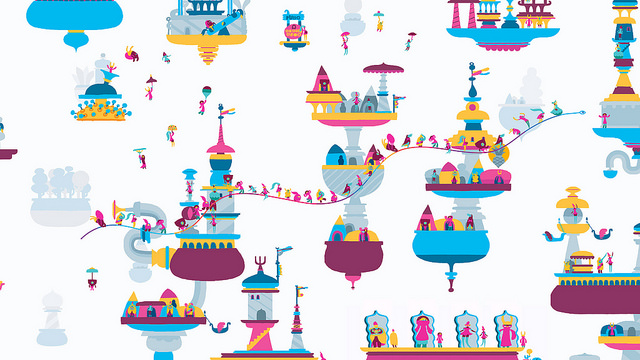
"I’ll tell you what, if someone had told me six months ago that Facebook was going to buy Oculus Rift and Sony was going to announce an HD VR headset I don’t know if I would have believed you."
Ricky Haggett: Yeah, so it’s interface is the difference.
Richard: Yeah, there’s no difference in content.
Ravi Sinha: What creative opportunities do you think VR will open up for developers?
Ricky Haggett: Oh, I don’t know!
Richard Hogg: That’s a really good question.
Ricky Haggett: It really feels quite early in the cycle of VR. Oculus VR hasn’t even released its HD headset, has it?
Ravi Sinha: Yeah.
Ricky Haggett: So I feel like there’s a whole load of amazing things that no members of the public have really seen yet. I certainly haven’t experienced much yet. Have you used the HD Oculus Rift?
Ravi: No, I haven’t used it, but it looks interesting. We’ll have to wait and see what kind of games come out for it.
Ricky Haggett: Yeah, that’s kind of how I feel. I think the potential’s huge; it’s just a case of waiting and seeing what people do with it.
Richard Hogg: The only game I have played on the Oculus is Robin Arnott’s Sound Self, which is a kind a mediation, a very abstract meditation game where you sort of sing and it creates a three dimensional psychedelic experience based on what you’re singing. It’s amazing. Really good. But I’m really excited about the Elite game that’s being made for the Oculus because that’s basically the game I fantasized about as a kid.
You know, I’d seen films like The Last Starfighter and I’d played a lot of Elite and I used to think as a kid, “Wouldn’t it be amazing if this game could be played with a VR headset and be properly multiplayer?” And it’s going to happen. And it’s not the kind of game I’m so into these days, but I’m going to have to buy it just to fulfill a promise to my eleven year old self, if that makes any sense.
Because the idea that you could go back in time to me when I was eleven and say, “Oh, yeah, this is going to happen. This technology is going to happen and the exact game that you’re dreaming about is going to come, but by the time it comes you won’t be interested…” I would be so disappointed with my future self.
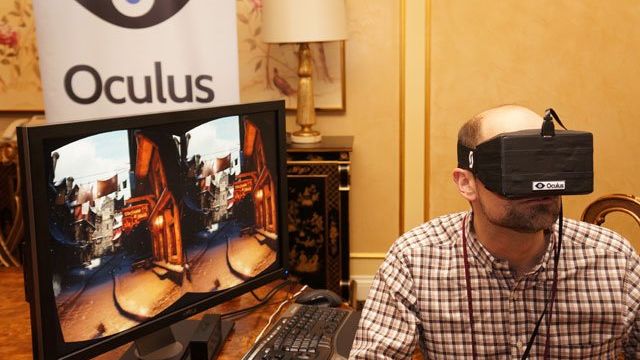
"[On developing for Xbox One] We’re an independent game studio, so you’d be crazy to say never. "
Ricky Haggett: I’ll tell you what, if someone had told me six months ago that Facebook was going to buy Oculus Rift and Sony was going to announce an HD VR headset I don’t know if I would have believed you. It does seem like there’s a lot of eggs being put in that basket. It’s going to be quite exciting to see what happens.
Richard Hogg: It’s pretty amazing to think that’s it’s all gaming based.
Ricky Haggett: Yes. Do you have any more questions?
Ravi: Yes. I know you get asked this question a lot but do you have any plans to bring any of your future games to the Xbox One? I know Hohokum is being published by Sony, so that really can’t happen, but the possibility is open for future games, right?
Richard Hogg: You know what; we’ve never been asked that question before as far as I know. Have you been…?
Ricky Haggett: I don’t think so. Hohokum is being made by Honeyslug and Richard Hogg. We’re an independent game studio, so you’d be crazy to say never. I wouldn’t rule it out, but it’s not something we’re actively seeking to do, either.
Ravi Sinha: I think that’s it. Out of curiosity, you don’t have any thought on DirectX 12 that’s coming out for the Xbox One, do you?
Richard Hogg: I don’t even know what that is.
Ricky Haggett: I don’t know anything about it.
Richard Hogg: I’m really bad at talking about things like that. Sorry, man.
Ravi Sinha: That’s perfectly okay. Well, I’d like to thank you guys for your time, and it was really great talking to you.
Ricky Haggett: Cool. Thanks very much!
Richard Hogg: Cheers!









